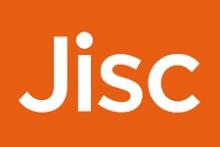UK Government calls on Jisc to improve research culture

The UK Government has released its response to the independent review of research bureaucracy, with recommendations that Jisc helps improve digital platforms to reduce costs and free up researchers.
The Government response recognises the “much wider role Jisc plays within the sector including with research organisations” and includes a key recommendation: that Jisc should lead on the creation of sector-wide groups responsible for overseeing the development and further integration of the research information ecosystem, including research management data.
The response follows the 2021-22 review of research bureaucracy by Professor Adam Tickell, Vice-Chancellor of the University of Birmingham. It notes “the importance of digital platforms across the research lifecycle, and the impact they have on the experience and perception of research bureaucracy”. It also flags the “opportunities to reduce the bureaucratic burden in the design and introduction of new digital programmes”.
The Government’s response recognised Jisc’s critical role, saying: "As the UK’s National Research and Education Network, Jisc has a significant and continuing track record in providing foundational technology and infrastructure, including network capacity, cyber security and access management.”
Secretary of State for Science, Innovation and Technology, the Rt Hon Michelle Donelan MP, said in the report: “Reducing unnecessary research bureaucracy is a task that requires constant vigilance and ongoing effort. We have a plan. We need to draw a line in the sand – from here on, our shared aim must be to reduce bureaucracy, not to introduce it, and I ask everyone across the research sector to do their part.”
Victoria Moody, director of higher education and research at Jisc said: “We welcome the UK Government’s response to the independent review of research bureaucracy and look forward to working with the research and innovation community to support this important initiative. At Jisc we support the development of digital services and technology in research and believe it is a key tool to reducing the burden of red tape on research.”
Jisc’s key commitments in the Government response are:
- Jisc will bring actors together from the higher education and research sector to strengthen the integration of digital infrastructure, data and information across the system
- Jisc will support the development of advanced high-performance computing, including exascale though long-term capacity planning for secure, stable networking, maximising capacity, ensuring the optimal, cost-effective and efficient use of these facilities
- Jisc will pilot within the JANET network innovative networking for research teams across the sector, including through the provision of edge computing, offering secure multi-tenanted, distributed digital research infrastructure which reduces costs and improves efficiencies
- Jisc will support UKRI and research stakeholders with the development of “federated” approaches across the UK digital research infrastructure in support of its efficiency, sustainability and innovation
- Jisc will broker agreements for licensing research software and hardware across the research lifecycle, meeting demand from research stakeholders for the negotiation, licensing and procurement of solutions that support research and innovation, driving standards and reducing duplication of effort across the research sector, administrative burdens and costs
- Jisc will bring actors together from the higher education and research sector to develop a strategic approach to sustainable and ethical approaches to the collection and management of data about research management and administration, research culture and environment, supporting assessment and positive research cultures
- UKRI, NIHR and Jisc will work together to improve data flows between different platforms, make more effective use of that data, and test the potential role of new software including AI
- UKRI and NIHR will work with Jisc, other funders and research organisations to improve data consistency across the sector, including common taxonomies and standards to support greater interoperability
Read the full independent review of research bureaucracy report.







